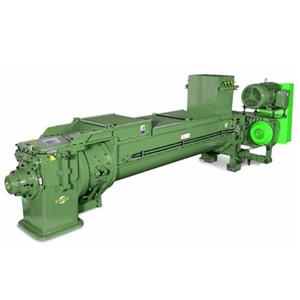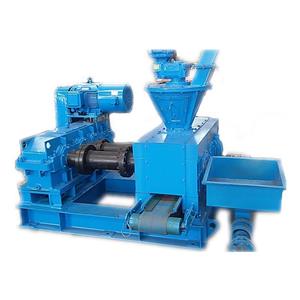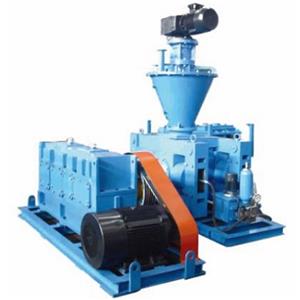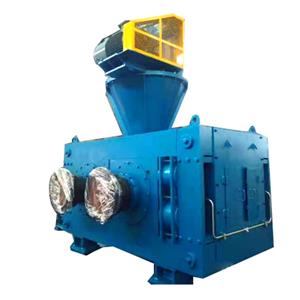Compound fertilizer extrusion granulation influence factors
The extrusion granulation process is a very common technology at present, but if the operation is careless or there are other influencing factors, there will be a variety of extrusion problems, next we talk about the factors affecting the effect of extrusion:
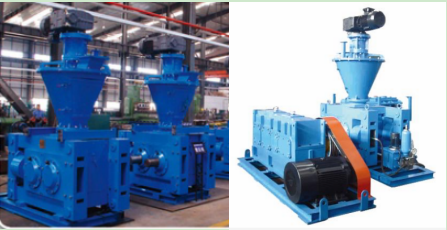
1. The material selection of the press roll is not good, and the selection is unreasonable.
Press roller is the core part of the whole equipment, the material requirements are very high, not only to ensure enough hardness, and strength but also to have good toughness, so as to adapt to the wing change under high pressure, to avoid the fracture of the press roller. In addition, due to the particularity of the working environment, the press roller also needs to have strong corrosion resistance, to slow down the corrosion of fertilizer under high temperature and high pressure.
2. The precision of processing equipment is not enough, and the error is large.
There are precision problems in roller skin and roller shaft (for example, the hole depth, hole spacing and hole type on roller skin all have different errors, leading to the failure of the bite on the roll section). In the high temperature and high pressure working environment, these errors will be magnified in the form of several times or even dozens of times, directly leading to a series of problems of low particle strength, low yield, low particle roundness.
3. Insufficient stability of the reducer and inappropriate mating type.
Most of the roll extrusion granulators are equipped with single shaft output reducers. It has not been tested under a strict working environment and the torque force is not matched. In the working process, a pair of pressure rollers exist active and passive, which easily leads to equipment chattering and noise generation.
4. The particle size of the feed is too large or too small.
In order to obtain a better extrusion effect, the particle size of the feed should be different, and the appropriate range should be controlled within 0.1~1mm. Overfine material (< 0.1mm) contains too much air, affecting the compactness of the finished sheet, and will affect the extrusion process (resulting in intensified vibration of the extruder); Too large material needs to consume more crushing energy. Therefore, the feed size should be well controlled.
5. The poor plasticity of the material
The hardness or plasticity of the material affects the pressure used in the extrusion process. For some materials such as potassium chloride, diammonium phosphate and urea, plasticity is better, and the effect of extrusion into granules is better. And potassium sulfate, ammonia sulfate, and phosphate rock powder plastic poor, not easy to extrude into grains. In order to achieve better results, an appropriate amount of adhesive can be added. Urea, potassium chloride, or a small amount of water can act as a binder.
6. The temperature of the material is too high or too low.
During the extrusion process, the friction between the particles will increase and heat will be generated to raise the temperature of the material. Generally speaking, the temperature rise is beneficial to get a more dense extrusion product - material sheet, but too high a temperature will bring adverse effects, especially urea-containing ingredients to avoid too high a temperature, otherwise, there will be a sticky roller phenomenon. The general temperature should be controlled between 70℃ and 80℃. This can be controlled by circulating cooling water inside the extrusion roll.

